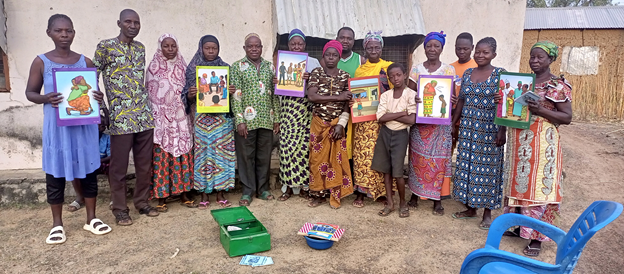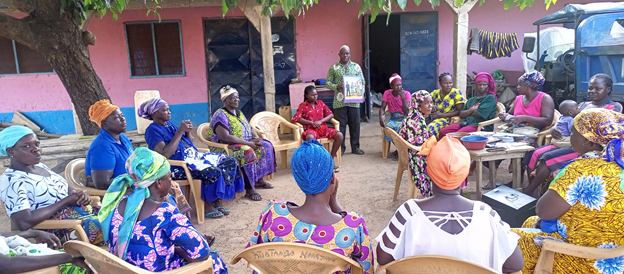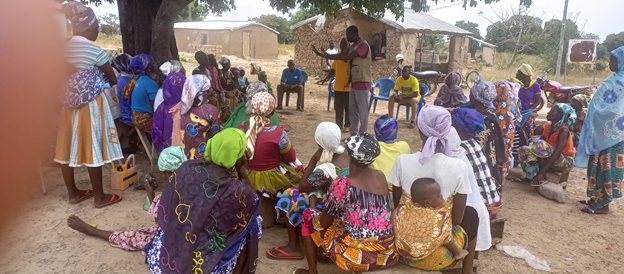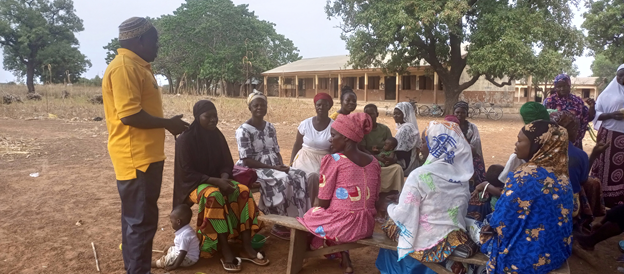As part of efforts to inculcate in the Ghanaian citizenry their rights and responsibilities, the Garu NCCE office of the Upper East region engaged identifiable groups on child protection. The programme aimed to provide a safe and protective environment for the children as a collective responsibility. The communities visited include, Tangzu, Garu-town, Gbelinginvuus, and Werichingo.
Mr. Akolgo Samuel, the District Director encouraged citizens to prevent and respond to cases of child abuse, neglect, exploitation, and other forms of violence against children. He said child abuse is a deliberate act of ill-treatment that can harm or is likely to cause harm to a child's safety; well-being, dignity, and development. He further explained that some actions or behaviour causes harm or puts a child’s physical, emotional, or mental well-being at risk. He said some of the factors that affect children, especially girls include physical abuse, verbal abuse, emotional abuse, sexual abuse, neglect, and exploitation. These factors are often rooted in social, cultural, and gender-related beliefs and practices.
Mr. Akolgo admonished parents to actively listen, communicate effectively, and create a supportive and trusting environment where children feel comfortable discussing their thoughts, concerns, and experiences. He said all children regardless of race, location, gender, or age have the right to be protected from all forms of violence, abuse, and exploitation, anywhere and at any time.
He further explained that one of the child protection aspirations of the Sustainable Development Goals (SDGs), is that all children are protected in conflicts and disaster and thrive in a safe family environment and “No one will be left behind”.
He said the 1992 Constitution in Article (28) (4) states that ‘No child shall be deprived by any other person of medical treatment, education or any other social or economic benefit by reason only of religious or other beliefs’. He said this is amplified by Section 3 of the Children's Act 1988 (Act 560) which states that ‘No person shall discriminate against a child on the grounds of health status, custom, ethnic origin, rural or urban background, birth or other status, socio economic status or because the child is a refugee’.

Tangzu Women’s Group

Garu Women’s Group

Gbelinginvuus Women’s Group

Werichingo Women’s Group
_
Follow us on our social media pages for more stories and posts from the NCCE.
https://www.instagram.com/nccegh1/
https://www.facebook.com/nccegh/


Leave a comment